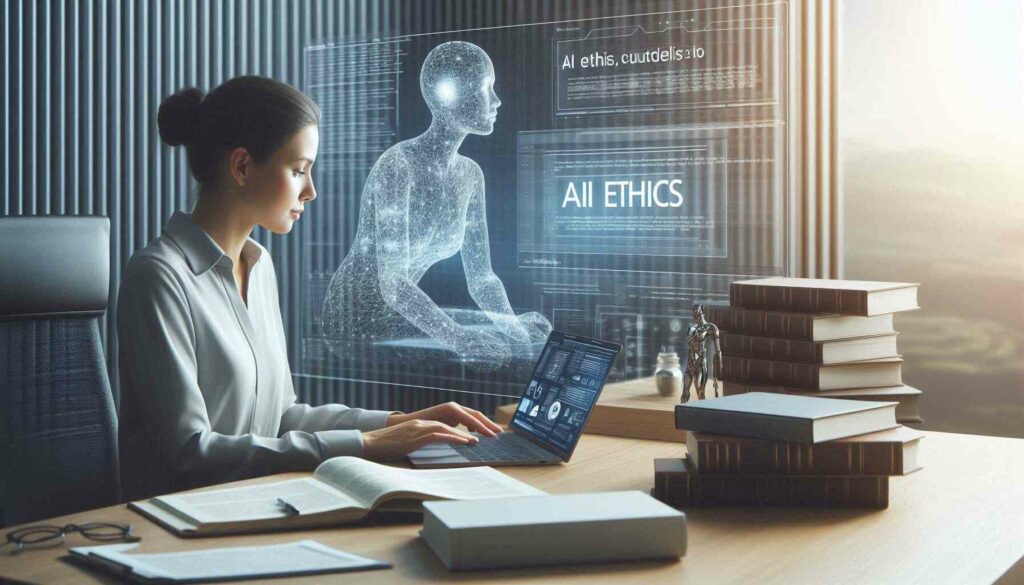
AI CERTS
4 months ago
Become an AI Legal Expert: The Future of Law and Technology
In the ever-evolving landscape of legal technology, artificial intelligence (AI) is playing an increasingly important role. The legal industry, traditionally known for its conservative approach, is now embracing cutting-edge technologies, and one of the most exciting advancements is the rise of AI in legal practices. Whether it's contract analysis, litigation support, or compliance automation, AI is revolutionizing the way lawyers work. For professionals interested in the intersection of law and technology, becoming an AI legal expert is a strategic career move.

In this article, we will explore what it means to become an AI legal expert, the necessary skills, certifications, and courses, and why this emerging field holds vast opportunities for legal professionals.
What Does It Mean to Become an AI Legal Expert?
To become an AI legal expert, a professional needs to have a deep understanding of both the legal framework and how AI technologies can be applied in legal settings. AI legal experts are at the forefront of using technology to transform the legal industry. They bridge the gap between law and technology, utilizing AI tools to improve legal processes and provide more efficient, accurate services to clients.
AI legal experts typically work in roles such as legal technology consultants, in-house legal advisors, or AI policy specialists. They may work with AI-driven tools for tasks like document review, legal research, compliance management, and intellectual property analysis.
The Growing Demand for AI Legal Expertise
As AI technologies continue to permeate every industry, the legal field is no exception. Law firms, corporate legal departments, and government agencies are seeking professionals with expertise in AI to streamline operations, enhance efficiency, and reduce costs.
The rapid adoption of AI technologies in law, such as predictive analytics, natural language processing, and machine learning, has created an urgent need for legal professionals who can understand, navigate, and implement these technologies. By learning how to become an AI legal expert, you can position yourself as a key player in this technological revolution, which will continue to reshape the legal landscape.
Key Skills Required to Become an AI Legal Expert
To truly become an AI legal expert, it’s essential to develop a blend of skills that encompass both law and technology. Here are some key skills that can help you stand out:
1. Knowledge of Legal Processes
An AI legal expert must have a solid understanding of traditional legal practices, including contract law, intellectual property law, and litigation procedures. This foundational knowledge is crucial for integrating AI into legal operations without compromising legal integrity.
2. Understanding AI Technologies
It's also important to understand the various AI tools that are transforming the legal industry. AI legal experts should be familiar with:
- Natural Language Processing (NLP): Used for document analysis and contract review.
- Predictive Analytics: To forecast litigation outcomes or assess risk.
- Machine Learning: Enhances decision-making capabilities and automates repetitive tasks.
A deep understanding of how these tools work will help you successfully implement them within a legal framework.
3. Data Analytics Skills
AI legal experts need to be proficient in data analytics, especially when working with AI systems that rely on large volumes of legal data. Understanding how to interpret and use data is essential for developing AI-driven solutions that can help law firms make better, more informed decisions.
4. Ethics and Regulatory Compliance
As AI technologies advance, ethical concerns regarding their use in the legal field have become prominent. AI legal experts must be well-versed in the ethical implications of AI and how they intersect with existing laws and regulations.
Steps to Become an AI Legal Expert

Step 1: Gain Legal Expertise
Before diving into AI, you must first have a strong foundation in law. If you haven’t already, pursuing a law degree or gaining experience as a legal professional is the first step in becoming an AI legal expert. Whether you're a lawyer, paralegal, or legal consultant, having a solid understanding of legal principles will be crucial.
Step 2: Develop a Basic Understanding of AI
Once you have your legal expertise, the next step is to learn about artificial intelligence. Start by gaining an understanding of what AI is, how it works, and its potential applications in the legal field. There are numerous online courses and resources available to help you understand the fundamentals of AI and its role in legal technology.
Step 3: Pursue Specialized AI Legal Certifications
To further enhance your qualifications, you can pursue specialized certifications in AI and legal technology. Here are some of the best certifications to help you become an AI legal expert:
- AI for Legal Professionals (AI CERTs)
A specialized certification designed for professionals looking to apply AI to legal work, covering tools and techniques used for document automation, legal research, and more.
Learn more about AI for Legal Professionals and its benefits. - Certified AI Legal Consultant (CLAIC)
This certification focuses on AI tools used specifically in law, equipping professionals with the knowledge to implement and manage AI solutions in legal practices.
Learn more about the Certified AI Legal Consultant certification. - AI Ethics and Law Certification (Coursera/Harvard University)
This course dives deep into the ethical and regulatory issues that arise when implementing AI in legal environments. It’s a perfect choice for anyone interested in the intersection of AI, ethics, and the law.
Learn more about AI Ethics and Law Certification. - AI Legal Technology Specialist Certification (Legal Tech Academy)
A certification program that focuses on the integration of AI tools in the legal industry, including automation, machine learning, and contract analytics.
Learn more about the AI Legal Technology Specialist Certification.
Step 4: Gain Hands-On Experience
As with any field, practical experience is key. Seek internships or positions that allow you to work with legal AI technologies. Whether it's using AI tools for contract analysis, legal research, or compliance monitoring, gaining hands-on experience will help you better understand the day-to-day applications of AI in the legal world.
Step 5: Network and Engage with the Legal Tech Community
Becoming an AI legal expert also means staying connected with the broader legal tech community. Attend conferences, webinars, and networking events related to AI and legal technology. Engaging with other professionals in the field will help you stay updated on the latest trends, tools, and best practices.
AI Legal Expert Job Opportunities
The rise of AI in law has created numerous job opportunities for professionals who can bridge the gap between legal expertise and technological innovation. Some of the most common roles for AI legal experts include:
- Legal AI Consultant: Help law firms and legal departments implement AI tools to streamline processes.
- In-House AI Legal Advisor: Work within a corporation to advise on the use of AI in compliance, data privacy, and other legal issues.
- AI Ethics Consultant: Advise on the ethical and regulatory implications of AI in legal technology and help companies navigate the complex landscape of AI law.
- Legal Technology Product Manager: Oversee the development of AI-based legal products and tools.
- AI Compliance Officer: Monitor the use of AI tools in law to ensure compliance with existing regulations.
Why Become an AI Legal Expert?

The demand for AI legal experts is on the rise, and the career opportunities in this field are vast. As law firms and businesses increasingly adopt AI technologies, they need professionals who can ensure these tools are used efficiently and ethically. Becoming an AI legal expert not only places you at the forefront of this technological shift but also opens the door to exciting career prospects in one of the fastest-growing fields today.
Moreover, becoming proficient in AI can significantly enhance your job prospects, with AI legal experts being highly sought after by law firms, government agencies, and tech companies alike.
Conclusion
The world of law is changing rapidly, and becoming an AI legal expert offers exciting opportunities to work at the cutting edge of technology and law. Whether you're just starting your legal career or are already an experienced attorney, adding AI expertise to your skill set will position you as a leader in the legal tech field. With the right certifications, hands-on experience, and a passion for innovation, you can become an AI legal expert and help shape the future of the legal industry.
Ready to level up your AI skills? Contact AI CERTs today!
Here are our other articles you might be interested :